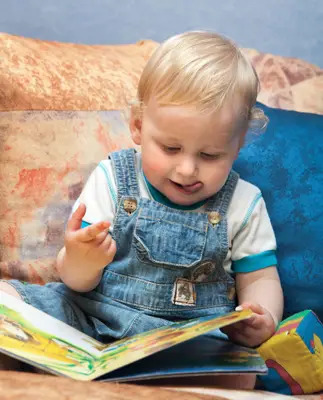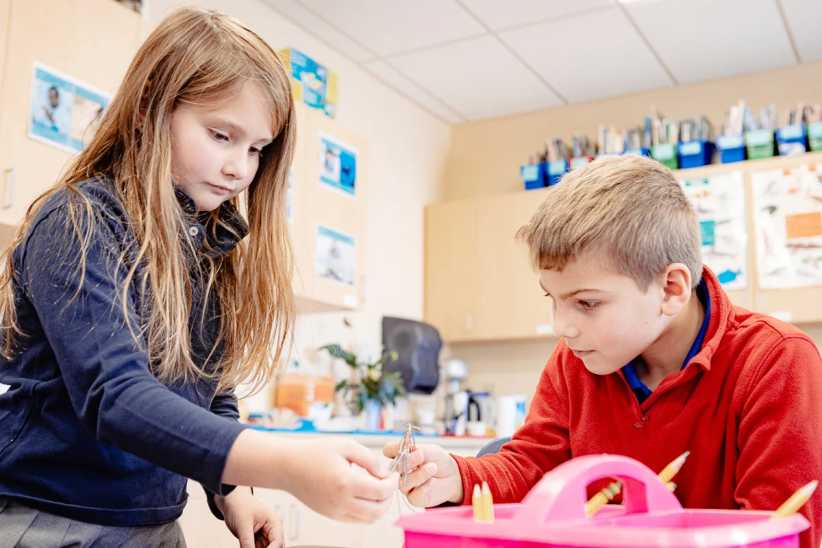Karen Quinn, author of Testing for Kindergarten, shares what she discovered – while writing her book and raising two children of her own – about how to arm your kids with the skills that will make them successful beyond school testing.
Curiosity, a devotion to passion, persistence, self-control, and a tolerance for failure are five of the most important skills shared by successful adults, according to Karen Quinn, an expert on school admissions and author of Testing for Kindergarten. A mom herself, Quinn delved into lots and lots of research in an effort to prepare her two children for the start of their school careers. And while her book covers all the ins and outs (and secrets) behind the world of intelligence tests – including how schools use them and fun activities to ready your children to take them – she also delves into what she discovered along the way about preparing your kids, beyond testing success, for life.
Here, in an excerpt from her book, we focus on three of those qualities. As Quinn notes, “Your son or daughter won’t pick these up in one or two lessons. They require time to take root. All you can do is plant the seeds and tend to them as your child grows.”
Curiosity
William Gates Sr. believes that Bill Gates‘s defining quality is his insatiable curiosity. As a boy, he read the entire Encyclopedia Britannica. In fact, he read everything he could get his hands on and  constantly asked questions. His parents encouraged that and made it fair game to talk about anything in their family’s lives around the dinner table.
constantly asked questions. His parents encouraged that and made it fair game to talk about anything in their family’s lives around the dinner table.
Eleanor Roosevelt once said, “I think, at a child’s birth, if a mother could ask a fairy godmother to endow it with the most useful gift, that gift should be curiosity.” Nurturing your child’s curiosity will help him develop a love of learning. How can you do this? You can help him explore all that captivates him without fear of failure. Notice what sparks his interest and provide the tools to dig into it further. Give him access to books, read to him, take him to museums, the planetarium, field trips. Encourage your child to go in whatever direction his mind wants to take him. We don’t get to choose what captivates our children; we can only be attentive to it and then support it.
Persistence vs. Smarts Mindset
In 1998, Stanford University psychology professor Carol Dweck performed an experiment where she gave two evenly matched groups of elementary students the same IQ test. When one group did well, they were told that they must have worked hard to get the result. The other group was told they must be very smart to have done so well.
Over time, Dweck found that the children who were told that they were smart fell apart when they hit challenges, gave up easily when faced with tasks they didn’t think they could do, and lost confidence in their abilities. Children who were praised for working hard were more likely to seek out challenges, persist in the face of difficulty, and handle setbacks more easily.
What does this mean for parents? Do not praise your child for being smart. Instead, praise her for trying, for her strategy, her persistence, her efforts, her concentration, her choices, for not giving up. Your praise should be specific and genuine. Check out Dweck’s book, Mindset, for more on this study and how to praise your child’s process over her intellect.
Dweck says that intelligence is not fixed; it can be changed as long as we believe we can improve ourselves. If we think our abilities are limited by our natural intelligence, then they will be. She stresses the importance of raising children to value learning over good grades because competency can be developed with practice. As a parent, you should encourage your child to take on challenges that stretch her capabilities, work hard to improve, and confront and correct her deficiencies. When a child makes a mistake, she should be praised for trying, not criticized for getting it wrong.
Tolerance for Failure
In his Talent Is Overrated, Geoff Colvin argues that the idea of natural talent is a myth, and the path to great performance is a concept called “deliberate practice.” The essence of this is the willingness to continually stretch yourself just beyond your current abilities, practicing repeatedly what you have not mastered in response to feedback given to you by a coach or teacher.
Thomas Edison tried more than ten thousand times before he created the first successful lightbulb.
Michael Jordan says that failure is the key to his success: “I have missed more than nine thousand shots in my career. I have lost almost three hundred games. On twenty-six occasions I have been entrusted to take the game-winning shot…and missed. And I have failed over and over again in my life. And that is why I succeed.”
What do Walt Disney and Bill Gates have in common? They both started businesses that failed before they achieved remarkable success. Albert Einstein’s explanation for his successful discoveries was, “[N]ot that I’m so smart, it’s just that I stay with problems longer.”
Think about this: It isn’t fun to practice something you’re not good at over and over again. But that’s the only way a person can go from good to great. Enroll your child in piano, tennis, or any activity that interests him so that he can experience what it is to practice scales or hit balls and see improvement in his technique. If you find that your child is frustrated by something he is attempting to master, try to isolate the aspects of his performance that are tripping him up, get him instruction on how to do it right, and encourage him to practice the hard part until he masters it.
From Testing for Kindergarten by Karen Quinn. Copyright ©2010 by Karen Quinn. Reprinted by permission of Fireside, a division of Simon & Schuster, Inc.
|
Also see: How to Help Your Child Have a Successful School Year |



















